Myth – Drinking cactus water is safe to prevent dehydration.
Lets say you decided to drive out into the desert without your cell phone or even a bottle of water on hand. Predictably your car breaks down in the middle of nowhere and you haven’t seen anyone for hours. You are thirsty and sweating and you just happen to be next to a bunch of cacti. Do you go ahead and cut into them in order to drink the fluid inside? You probably shouldn’t. The majority of cacti have liquid inside of them that will make you sick, leading you to get nauseous and eventually throw up some of your precious body fluids. There are safe cacti out there from which you can drink but they are so rare and hard to identify that you are better off not chancing it. Instead you should stay near your vehicle, avoid the sun, and hope someone comes your way. For what it’s worth, if you are terrified of dying of dehydration perhaps you should avoid a cheap flight and hotel reservations in hotter climates.
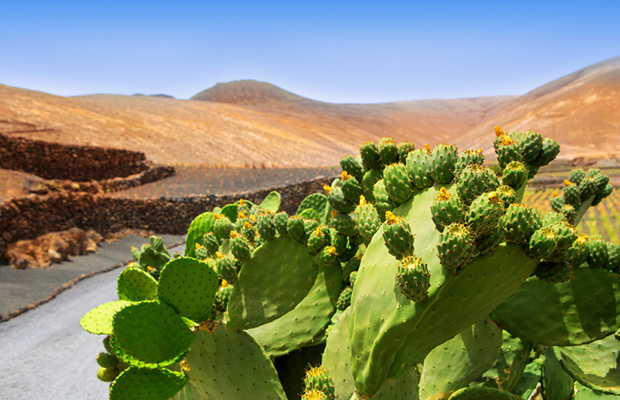
cactus water
Myth – You should suck the venom out of a wound.
We’ve seen the TV shows and movies where our hero, or his damsel in distress, is bitten or stung by an immensely poisonous creature. What is the first thing these action stars do in this situation? Well, obviously they button down, put their mouth on the wound, and try to suck the venom right back out. At face value this response seems logical and perhaps even helpful, however research has shown the truth to be somewhat less inspiring. Field studies done by the University of Arizona have shown this sucking method to be more damaging to the tissue around the wound than if it had otherwise been left alone. You also run the risk of damaging your mouth, lips, and throat if you choose to suck the venom out. The scientists also advise to avoid tourniquet’s, compression cloth, and ice in these situations. If you are bitten by a poisonous animal your best hope is to find help, and not rely on pseudo science. Make sure you don’t stray too far away from your hotel reservation if you are going to be around poisonous animals.
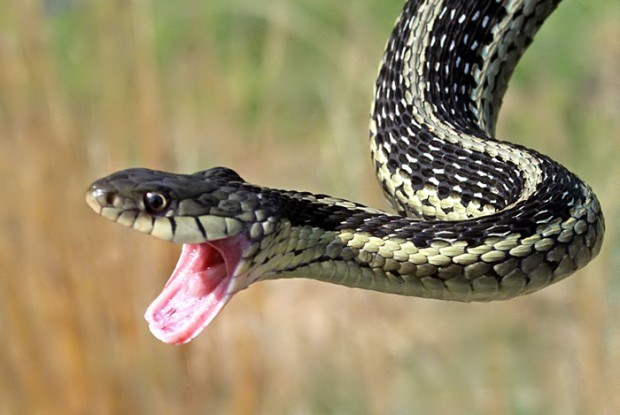
Snake Bite
Myth – You must find a food source immediately.
So the television screen comes to life and we see our adventure hero land in the middle of a tropical jungle. He’s sweaty already, dirty, and ready to leap into action to show off his survival skills to the camera. If he tells you that finding food first is a priority, you know he is full of it. While having a food source available is immensely important in the long run, it is far from your most pressing need. Humans can live up to six weeks without eating any food and that will give you plenty of time to work out more pressing issues like warmth, water, and shelter. Before you grab a cheap ticket to your survival destination, understand that food isn’t your largest priority.

Hunting
Myth – You can probably get away from a bear.
You don’t need to be Hugh Glass to realize how dangerous and deadly a bear attack can be. While bears look plenty cute in movies and on television, they are one of the worst creatures you can come across while out in the wilderness. If you run into a bear your response will be dictated by the color of its fur. Black bears, which tend to be smaller than Grizzlies, are more able to be intimidated if you can make yourself look big while making a lot of noise. Open up your coat or shirt, put your arms in the air, and scream as loud as you can. Usually, the bear will back away — spooked by your display. If you run into a Grizzly bear your approach should be the opposite. Don’t make eye contact with the creature and try to back away slowly. If it charges at you then you need to stand your ground while hopefully having a weapon on hand. Once struck down protect your vital organs and play dead and hope that the creature leaves you be.

A Bear
Myth – You should drink your urine.
If you’ve ever been dehydrated, even for just a small bit of time, you might have tried to imagine needing to drink your own urine. In most survival situations the act of drinking your own urine will cause more problems than it solves. In a hot environment, pushing 90 – 100 degrees, drinking your urine will simply stress out your kidneys which will lead to your own overheating — exacerbating any problems you already had. In more temperate climates the decision to drink your own urine can be an OK short term solution but it is definitely not a fix. When overheated you are better urinating on a piece of cloth and folding it over your head to cool you down.

Dehydration
Myth – Reality survival television will help you survive.
We honestly could watch Bear from Man vs. Wild perform survival stunts all day. He’s a magnetic personality and a true survivor — seriously, look at his backstory. However, we would be hesitant to take any of his suggestions, or any other show for that matter, to heart. While the stunts they perform are real the focus is more on crafting great television then in really educating the viewer. So don’t think that because you saw someone on television perform a survival stunt that you are perfect to give it a shot. You aren’t. Be smart, be safe.
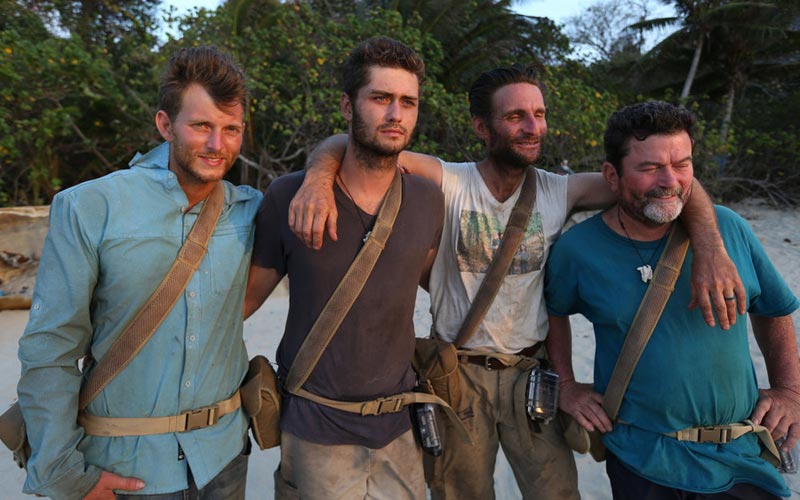
Jud Nichols, Dakota Mortensen, Rob Brothers, and Jim Murray before leaving The Island
Myth – Punching a shark in the nose will save you.
My motto in life is to avoid situations where I could end up as shark food. If you don’t live by this maxim and end up in the ocean with a beast of the deep then you are in need of some serious help. Many people believe that punching a shark in the nose will stun it long enough for them to swim to safety. This isn’t true. Not only do most people lack the strength to properly stun a shark, they should instead be focused on something else. You should scratch at their eyes or gills in order to scare them off. However, a dedicated shark cannot be swayed so keep that in mind next time you go shark diving.

Shark
Myth – Rationing is the only way to survive.
If you are stranded somewhere with a limited amount of food and water then you must obviously be careful about how much of either you consume. You must also be aware of your body in an entire new way. Rationing is not the be-all-end-all of survival. What good will having water tomorrow do you if you die from dehydration today? Instead of focusing on water rationing you should instead focus on finding shaded shelter, staying as hydrated as possible, and only burning energy during the night hours.
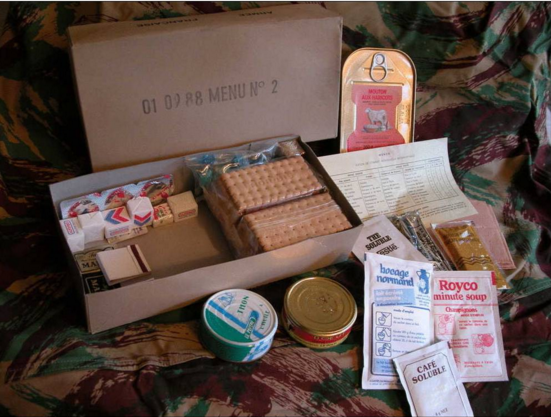
Rationing
Myth – Survival training is reserved for professionals.
If you think that only thrill seekers and campers/hikers end up in survival situations then you are entirely off base. There is no telling when you will need to employ these survival tips and techniques. What if your plane crashes? What if you go for a day hike only to get lost or worse, break a limb. Knowing how to survive in nature is something that everyone should be able to do.
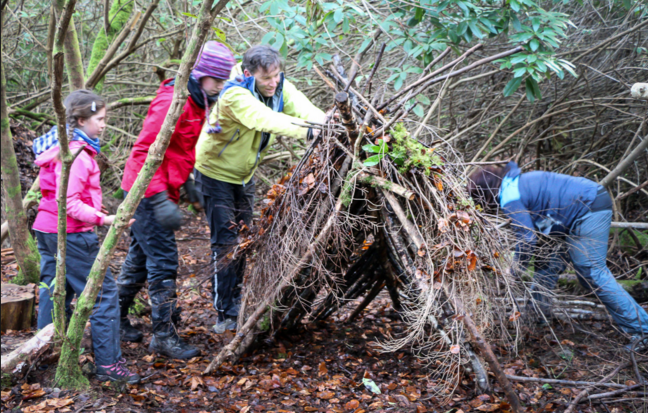
Survival training
Myth – You can be saved via helicopters anywhere.
We’ve all seen the TV shows and movies where our stranded survivor is finally rescued by a hero in a helicopter. This situation becomes true many times in real life, but not always. There will be times when helicopters don’t have the capability of landing where you are at — much less finding you to begin with. As always, weather will find a way to dictate your rescue as well. You are far more likely to be rescued by someone on the ground than in the air.

helicopter
Myth – Boiling water makes it safe.
Probably the most consistent myth in the survival world is the idea that boiling water will instantly make it safe to consume. This just isn’t the case and it is a myth that could end up getting you killed. Boiling salt water, for example, will just make things worse — you need to distil it. In fact, no amount of boiling will remove chemicals from water. You should instead try to find fresh water and then filter it through some cloth before boiling.
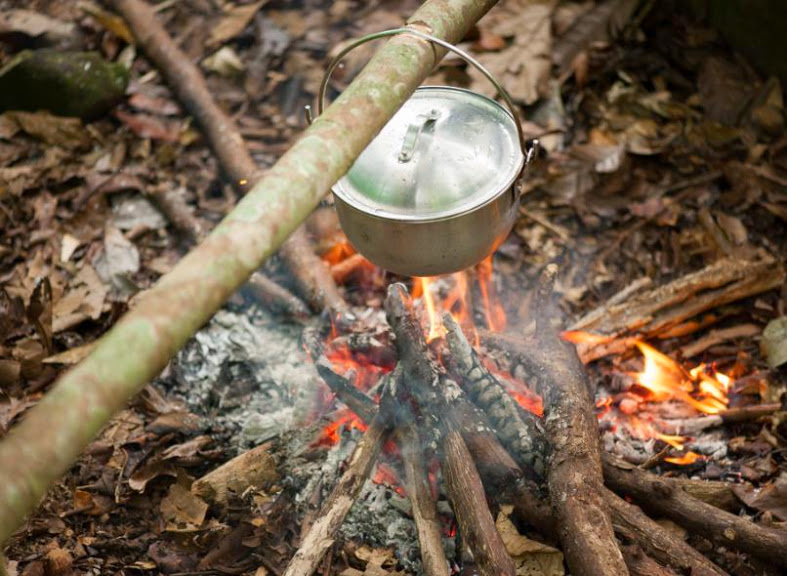
Boiling water








